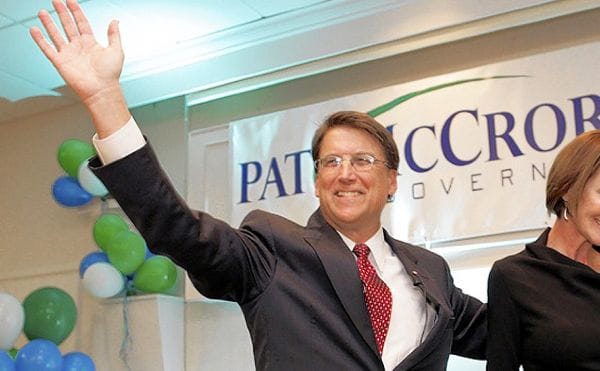Significance of GOP Gain in the 2012 Gubernatorial Elections

Credit: dukechronicle.com

The 2012 general election was bitter for the GOP because so much hope was put into defeating President Obama, yet he won re-election anyway.
While there has been a good deal of post-election finger-pointing and second-guessing--a popular theme among conservatives has been that Mitt Romney did not fire back as aggressively in defining the president as the president defined Romney--there is a bright spot for the party. The GOP picked up the gubernatorial seat in North Carolina. This gives the party control of 30 governorships, which is an historic feat.
You have to go back more than 10 years to find a point when either party held at least 30 governor seats. The GOP last had 30 governors in power just before the November 2000 gubernatorial elections. So, what is the significance of this historic feat by the party?
The strength of the GOP, at least right now, is more on the state level than on the national level. The pickup of the governor's seat in North Carolina also helps boost the GOP's sagging morale going forward, which it needs after so much effort and hope was put into defeating Obama.
An interesting aspect of the GOP gain in the 2012 gubernatorial elections is that the Democrats actually spent more money than the GOP in their quest to hold onto and gain governorships. The Democrats spent a larger share of cash raised than the GOP, yet they still failed to defend all of their governorships effectively.
While one can make the case that the Democrats were at a disadvantage because they were playing more defense in many gubernatorial races than the Republicans, their greater expenditure in the contest still illustrates a less efficient use of funds raised than the Republicans.
Unsurprisingly, many people are curious about incorporating the success of the GOP gain in the 2012 gubernatorial elections to future presidential contests. There are a few important differences between what GOP candidates on the national stage face compared to candidates in gubernatorial races.
For one thing, governors are not tracked nearly as much by the mainstream media or liberal pundits as GOP presidential candidates. This allows governors more breathing room to get things done without the media influencing them. Governors are also problem-solvers, which means that they have a track record of accomplishments in their states that voters can look to. Remembering these lessons can be of benefit to the GOP going forward.



